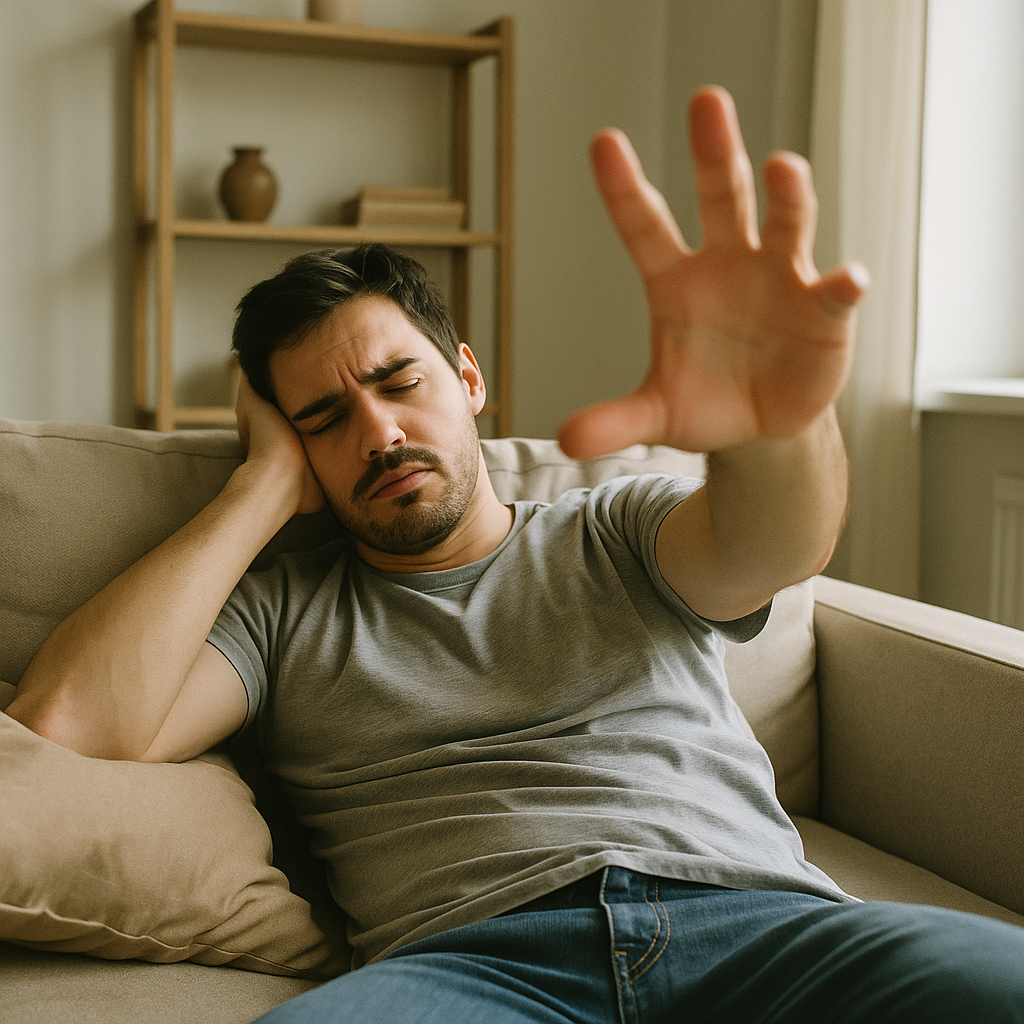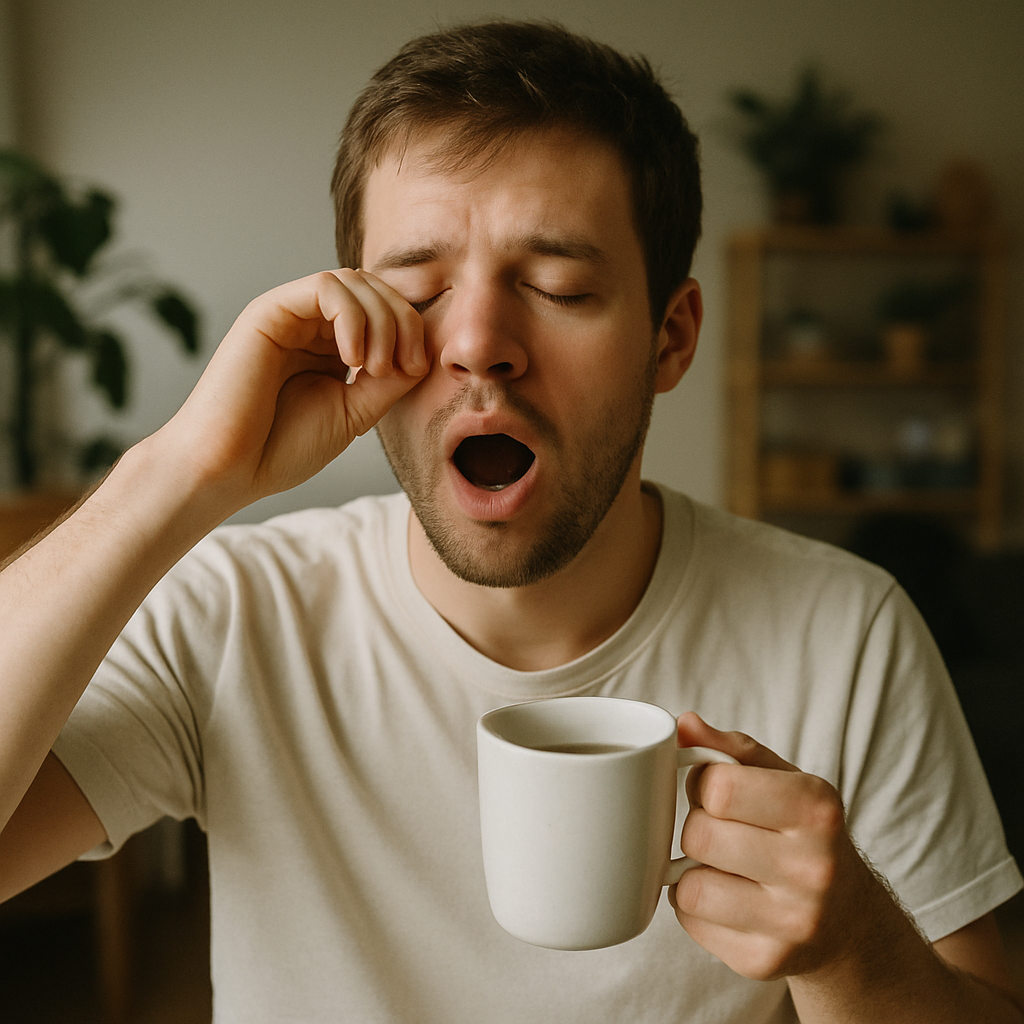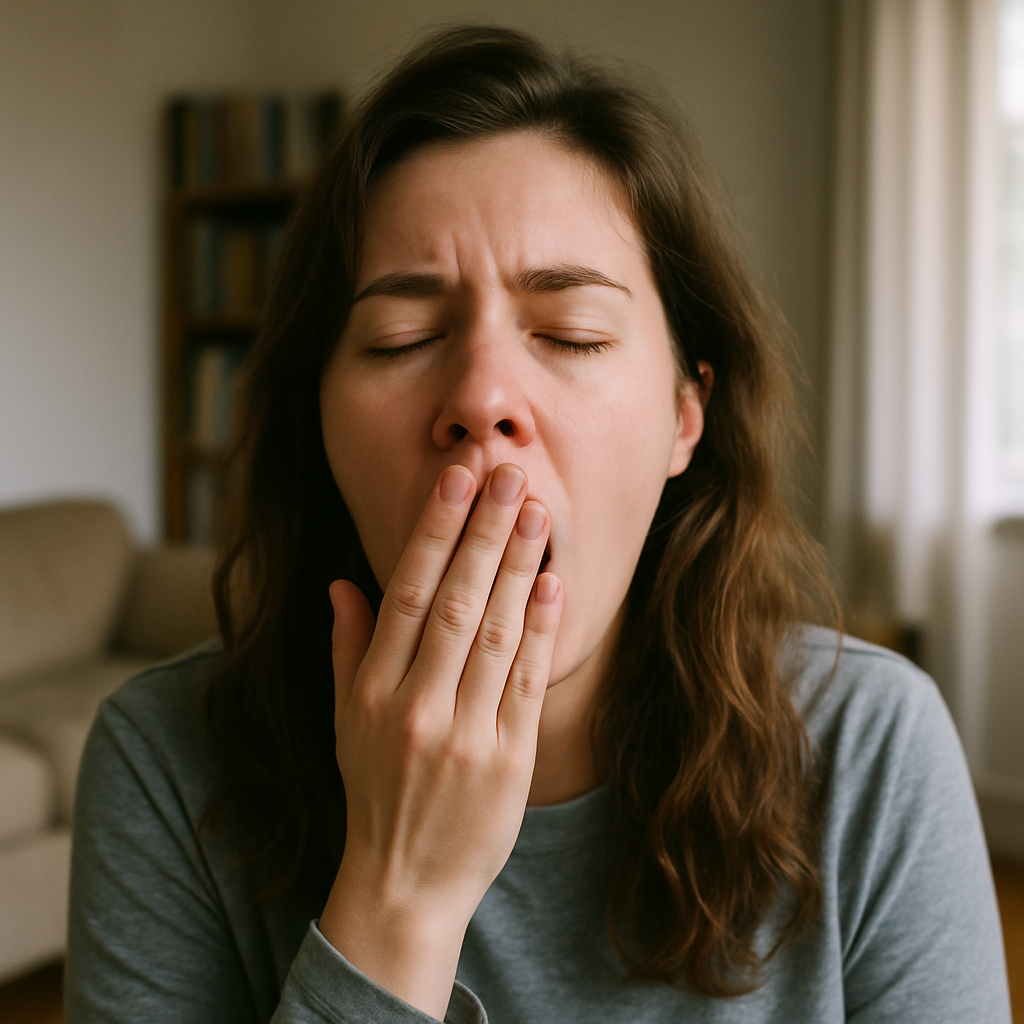Ask Ayurvedic doctor a question and get a consultation online on the problem of your concern in a free or paid mode. More than 2,000 experienced doctors work and wait for your questions on our site and help users to solve their health problems every day.
How to Overcome Laziness and Sleepiness Naturally

Struggling to get out of bed even after a full night's sleep? You're not alone. Many people today are silently battling laziness and excessive sleepiness, whether it’s at work, during studies, or simply trying to get things done at home. If you've ever googled things like how to overcome laziness and sleepiness or how to get rid of sleepiness without caffeine, you're likely already tired of feeling tired all the time.
Understanding the root causes and learning practical strategies can help you finally break free from the heavy grip of too much sleepiness and low motivation. In this article, we’ll explore the physical, mental, and Ayurvedic reasons behind laziness, and share proven natural tips on how to avoid laziness and feel more energized — without relying on stimulants or quick fixes.
Let’s dive into how to stop laziness, shake off that foggy brain feeling, and actually feel good about starting your day.
What Causes Laziness and Excessive Sleepiness
Before you can overcome laziness, you need to understand what’s actually causing it. Is it just tiredness, or something deeper?
Physical vs. Mental Fatigue
One of the first steps in figuring out how to get rid of laziness is knowing whether you're physically exhausted or mentally drained. They’re not the same, but often feel very similar.
Physical fatigue usually stems from overworking your body — late nights, poor sleep, lack of nutrients, dehydration. Mental fatigue, on the other hand, comes from constant stress, decision overload, or emotional burnout. Both can lead to daytime sleepiness and a lack of motivation.
Too much sleepiness, especially in the morning or after meals, can be a sign that your body’s energy systems aren’t working quite right.
Role of Dosha Imbalance
From an Ayurvedic standpoint, laziness is often linked to imbalances in the body's doshas — especially Kapha. Kapha is the energy that governs structure and stability, but when it’s out of balance, it can make you feel dull, heavy, and lethargic.

Don't wait or self medicate. Start chat with Doctor NOW
Ayurvedic View: How to Overcome Laziness and Sleepiness
Modern science has explanations, sure — but Ayurveda offers timeless wisdom on how to avoid laziness and maintain vibrant energy throughout the day.
Kapha Dosha and Daytime Sleepiness
When Kapha dominates, you might feel an overwhelming desire to nap during the day, even after enough rest. This sluggishness isn’t always just “being lazy” — it’s often the result of lifestyle and dietary choices that increase Kapha energy.
To overcome laziness and excessive sleepiness in this case, the solution lies in reducing Kapha. That means stimulating your body with warmth, movement, and lighter foods.
Low Agni and the Urge to Sleep Too Much
Agni, or digestive fire, plays a huge role in your energy levels. When Agni is low, not only does digestion slow down, but your whole system becomes less efficient — leading to that ugh-I-can’t-move feeling. Boosting Agni helps remove laziness at the root.
Also, too much sleepiness is sometimes a sign that the body is trying to process ama (toxins), which builds up from undigested food or emotional clutter.

How to Get Rid of Laziness and Sleepiness Naturally
Now that we've unpacked the causes, let’s talk solutions. The good news? You don’t need to pop a pill or chug a gallon of coffee to shake off that fog. There are natural, effective ways to overcome laziness and restore your energy — without feeling like you're forcing yourself every step of the way.
Dinacharya Routine to Avoid Laziness
In Ayurveda, Dinacharya is the concept of a daily routine that aligns with your body’s natural rhythms. Sounds simple, but this can be one of the most powerful ways to avoid laziness — especially the kind that creeps in slowly and stays.
Start your day early, ideally before 6 AM, when Vata energy is at its peak. This time of day is light, mobile, and mentally stimulating. Waking up during this window reduces grogginess and helps reset your internal clock. Snoozing past 7 or 8 AM increases Kapha dominance, making it harder to shake off excessive sleepiness.
Add a short morning walk, some warm water with lemon, and a bit of gentle movement like yoga or stretching. It doesn’t have to be perfect. Even if you just manage 10 minutes of walking, it's a start. Over time, this routine makes it easier to stop laziness before it starts.
Foods and Herbs to Stop Laziness and Boost Energy
What you eat — and when — also makes a huge difference. Heavy, oily, or sugary foods increase Kapha and slow digestion, leading to more daytime sleepiness. On the other hand, light, warm, and spicy foods can help stimulate Agni and keep you alert.
Here’s a few suggestions to remove laziness naturally through diet:
-
Ginger: Fresh or dried, this fiery root wakes up digestion and clears sluggish energy.
-
Tulsi (Holy Basil): Helps reduce ama and supports clear thinking.
-
Triphala: Supports gut health and detoxification, especially if you feel weighed down.
-
Pepper, turmeric, cinnamon: Spices that help energize and reduce excess Kapha.
Avoid cold dairy, fried foods, and anything overly sweet — those things just makes the laziness worse, trust me. Oh, and eating late at night? Big no-no.

Lifestyle Tips: How to Avoid Laziness and Wake Up Refreshed
Changing your lifestyle doesn't mean turning into a different person overnight. You can still binge your favorite show or stay up late on weekends — but balancing that with mindful habits can reduce too much sleepiness and help you feel way better overall.
Morning Habits to Get Rid of Sleepiness
Try this simple habit loop: Wake up → Drink warm lemon water → Move your body → Take a cold shower.
Even if you’re tempted to go back to bed (hey, we’ve all been there), this 10–15 minute routine sends a signal to your nervous system that it’s time to be awake.
You might feel silly doing it at first, but over a few days, it becomes second nature — and how to avoid sleepiness in the morning won’t feel like a mystery anymore.
How to Avoid Sleepiness Without Caffeine
Relying on caffeine can lead to dependency and energy crashes later in the day. Instead, try:
-
Sunlight: Step outside within 30 minutes of waking up. Natural light resets your circadian rhythm.
-
Hydration: Dehydration is a hidden cause of fatigue. Drink a full glass of water as soon as you wake.
-
Breathwork or Pranayama: Just 3-5 minutes of deep breathing increases oxygen and helps energize the brain.
How to overcome laziness and sleepiness doesn’t have to be complicated — it’s more about consistency than intensity.
When Too Much Sleepiness Requires Attention
Let’s get real for a sec — sometimes, no matter how well you eat, move, or meditate, the excessive sleepiness doesn’t go away. That’s when it’s time to look a little deeper.
If you're sleeping more than 9–10 hours regularly and still feeling exhausted during the day, it might not just be laziness. Excessive sleepiness is a sign of possible underlying issues such as:
-
Thyroid imbalances
-
Sleep apnea
-
Depression or anxiety
-
Chronic fatigue syndrome
-
Iron or B12 deficiency
And let’s not forget, some medications can also cause too much sleepiness as a side effect. If nothing's working, don't wait too long — talk to a doctor, preferably someone who understands both modern and holistic health.
Also, there's medicine for sleepiness, but it should be used cautiously and only when necessary. It’s better to support your body’s natural rhythms rather than relying on stimulants to stay awake.
Conclusion
Laziness and sleepiness are often misunderstood. They're not signs that you're weak or lazy by nature — they’re messages. Signals from your body and mind that something's out of balance.
By following a mindful daily routine, adjusting your diet, moving your body, and maybe even rethinking your sleep habits, you can overcome laziness and feel more alive than you have in years. Whether it's a light jog in the morning, a ginger tea instead of coffee, or just getting up 15 minutes earlier — small changes add up.
And hey, you’re human. You're gonna have off days. Days where you eat chips and binge Netflix instead of meditating or stretching. That’s okay. What matters is the return — your ability to come back to what supports you.
So next time you're wondering how to get rid of laziness or how to avoid sleepiness in the middle of a meeting, try asking yourself: What does my body actually need right now?
You might be suprised by the answer.
FAQs
What is the root cause of laziness?
Laziness often stems from a mix of physical tiredness, mental fatigue, and emotional resistance. In Ayurveda, it’s usually connected to excess Kapha or low Agni. Poor lifestyle habits, lack of purpose, and even digestion issues can all contribute.
How can I stop daytime sleepiness without caffeine?
Step into the sunlight first thing in the morning, hydrate well, eat light but nourishing meals, and add movement to your day. Pranayama or breathwork can also help boost alertness naturally. Trust me, it works better than a 3rd cup of coffee.
Is excessive sleepiness a sign of illness?
Yes, sometimes it is. Excessive sleepiness is a sign of conditions like hypothyroidism, sleep disorders, or chronic fatigue. If natural methods don’t help and you’re always tired, it’s worth seeing a healthcare professional.
Can too much sleep make you feel more tired?
Absolutely. Oversleeping can actually mess with your circadian rhythm and make you feel more sluggish. Just like too little sleep, too much can throw off your energy levels and increase daytime sleepiness.
Call to Action
Feeling inspired? Try one small habit from this guide today — whether it’s waking up earlier, swapping coffee for tulsi tea, or simply getting outside for 10 minutes.
If this article helped you understand how to overcome laziness and sleepiness, share it with someone who’s always saying, “I’m just tired all the time.” You never know who might need that nudge to take back their energy.

